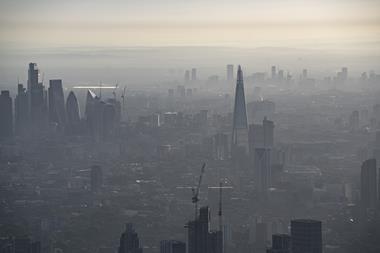Many Chinese scientists encounter false reagents
By Zhiguo Xu and Hepeng Jia/Beijing, China
False reagents are threatening China’s biological and chemical science, but neither scientists nor regulators paying the situation the attention it deserves.
The identification of false reagents originates from the suspicion of Xi Jianzhong, a biomedicine research fellow at the College of Engineering of Peking University, who failed to obtain desired results in his repeated experiments for half a year.
Xi tried to exclude all other factors until he eventually located the reagents - DMEM (Dulbecco’s modified eagle medium) - produced by leading reagent maker Invitrogen. Xi bought the reagent from a small supplier at about 20 per cent less than the standard retail price.
In an investigation carried out by Xi and Beijing-based magazine Science News Bi-weekly in late March, they found the batch of DMEM newly ordered from the supplier - SYBIO - was fake. The result was confirmed by Invitrogen.
Luckily, after replacing the fake reagents, Xi soon obtained the expected results in his experiments.
Serious threats
’I was extremely angry when I discovered the reagents were false. Reagents only cost a small amount of money, but it has wasted so much time and energy in research,’ says Xi, adding that he is speaking out to warn researchers that false reagents could be widespread.
A subsequent online survey by Science News Bi-weekly and ScienceNet.cn confirmed Xi’s suspicions. In less than two weeks, more than 100 scientists claimed they had encountered false reagents or other poor quality experimental material, or heard of other people having done so.

Ju Jun, a sales representative at Invitrogen, admitted that the company had previously found other makers of fake materials and tried to seek legal solutions. ’But we cannot obtain evidence. They never admitted that the false products were sold by them,’ Ju says.
In an online talk show held in late April by Science News Bi-weekly, Wang Hongfei, a senior scientist at the Institute of Chemistry, Chinese Academy of Sciences, said that fake reagents could cause serious harm to research. ’Unlike mass production, scientific research is far from standardised and has many unknown factors. So if researchers cannot get reliable samples or reagents, they can get wrong results and not find [what has gone] wrong.’
Responding to the reagent survey, Li Li, a chemist at Jinan-based Shandong University, says that using false reagents could lead to unreliable results that are impossible to repeat. Other scientists would not believe the results and question the researcher’s experiment.
Neglected area
Despite the harmful effects, few scientists have previously stood up to investigate or appeal against fake or low-quality reagents.
’Unlike a common consumer who can directly go to the dealers, coping with false reagents involves a whole research organisation and a complicated process, so busy scientists are hardly able to publicly protest,’ says Dong Jinshi, director of Beijing Kaifa Environment Protection Technology Centre and famed for his continued struggle against counterfeit materials.
In addition, the cost to challenge fakes in China is too high. If you accuse a product of being a fake, you must bear the costs of testing; meaningful punishments are also rarely handed down to fakers, Dong told Chemistry World.
Xi agrees. He says that dealing with fake reagents is highly energy-consuming, and accusers run the risk of being sued for libel.
In addition, as there are many factors leading to experiment failures, researchers can hardly concentrate on exploring possible reagent problems.
Solutions ahead
Regulators do not seem able to act on the reagent issues.
An official at the Administration for Industry and Commerce of Haidian District in Beijing says that although his agency is responsible for regulating all commodities in the market, it is unable to test specialised reagents.
But another official at the General Administration of Quality Supervision, Inspection and Quarantine (AQSIQ) says that reagents used in scientists’ labs are not under the agency’s jurisdiction.
A spokesman from the Ministry of Health says the ministry is responsible for the biosafety issues of labs, but not false reagents.
’In theory, consumer laws governing commodity quality should cover reagents, but if there is no capable government agency able to test, the laws are in vain,’ says Dong.
He adds that given China’s reputation for counterfeit goods in ordinary business areas, fake reagents in the research area is too small a problem to be noticed by the government.
Ju of Invitrogen suggested that scientists go to producers directly to avoid fakes, and that producers offer services for researchers to identify false reagents or devices.
Dong recommended that more scientists harmed by the reagents should take a stand. ’If there is a loud sound by many scientists protesting against the fake reagents, the government would take action because of the strong influence of the scientific community in society,’ he says.







No comments yet